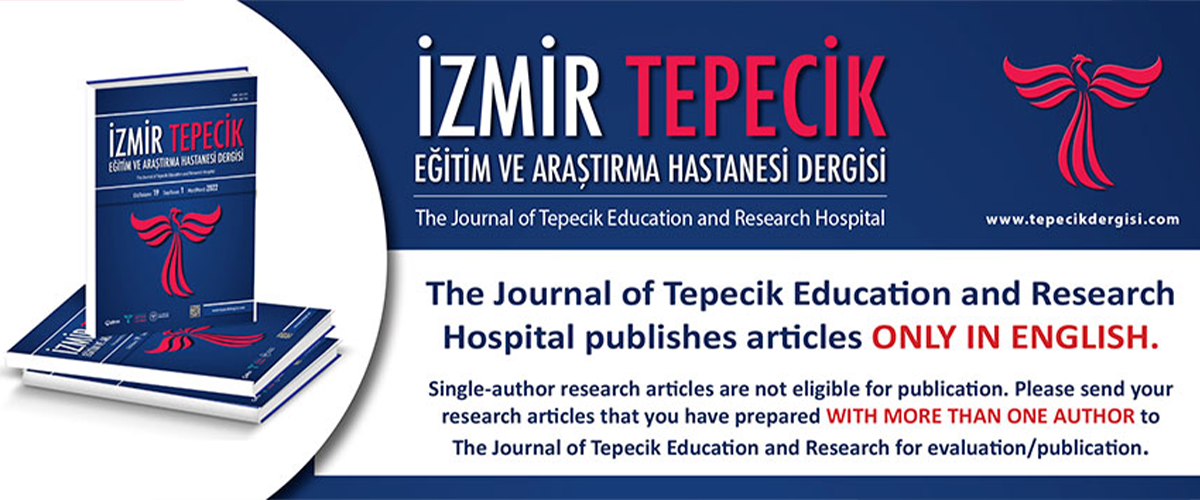








Association Between Sarcopenia, Insomnia, and Depression in Elderly Patients
Hasan Öztin1, Kazım Kıratlı21İzmir Katip Çelebi University, Atatürk Training and Research Hospital, Department of Internal Medicine, Division of Geriatrics, İzmir, Turkey2İzmir Katip Çelebi University, Atatürk Training and Research Hospital, Department of Infectious Diseases, İzmir, Turkey
Objective: Sarcopenia is progressive and generalized loss of muscle mass, muscle strength, and function. In this study, we aimed to examine the relationship between the presence of depression and insomnia in elderly sarcopenic patients.
Methods: Volunteer patients to participate in the study who applied to the geriatric outpatient clinic with any complaints as of June 2022 were included. The inclusion criteria were being over 65 years of age and with a score of over 24 out of 30 in the mini-mental state examination. Neuropsychological tests were performed by specialist psychologists in an appropriate environment and at an appropriate time. Those diagnosed with depression according to the Geriatric Depression Scale were recorded. Patients with insomnias were questioned whether they had complaints about sleep onset latency, staying asleep, and duration of sleep.
Results: Two hundred-five patients were included in the study. The mean age of the patients was 75.54 (±6.5) years, with 117 females 57% and 88 males 43%. According to the European Sarcopenia Diagnostic Guide, 48 (23.4%) patients were found to be sarcopenic. There was no difference between men and women in terms of the frequency of sarcopenia. Depression was significantly more common in the sarcopenic group. We found out that patients with sarcopenia had a higher rate of insomnia. Sleep onset latency, staying asleep, and duration of sleep problems were more common in these patients.
Conclusion: When sarcopenic patients and non-sarcopenic patients were compared, depression and insomnia were more common in the sarcopenic group.
Manuscript Language: English
(189 downloaded)




